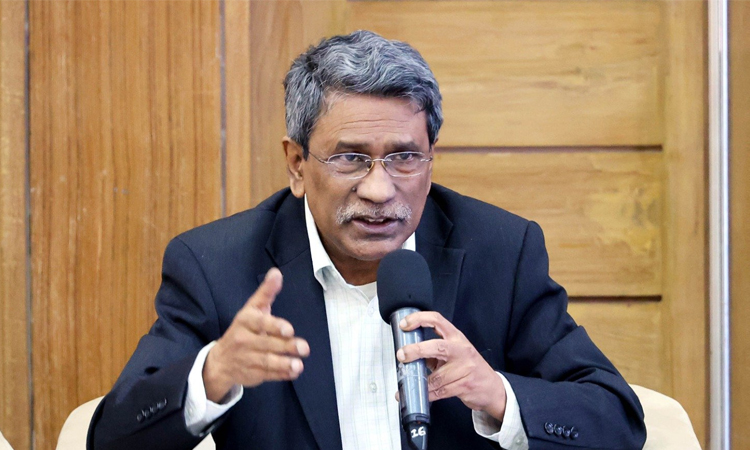News Flash

DHAKA, Aug 6, 2025 (BSS) - Observing that the country's media outlets are yet to be emerged as corporate entities, National Consensus Commission Vice-Chairman Professor Ali Riaz today stressed changing political culture to ensure the freedom of media.
"The media houses of Bangladesh have not emerged as corporate entities," he told a dialogue here.
Centre for Governance Studies (CGS), a Dhaka-based think-tank, arranged the "Dialogue on Media Freedom: Exploring Grievances and Self-regulations" at CIRDAP Auditorium.
Speaking as the chief guest, Prof Ali Riaz, also the Head of the Constitution Reform Commission, said most of the media houses in the country work to protect the trade and business of their owners and that is why those are not able to do something good rather protecting the immediate interest of owners.
He said people usually do not know the owners of the world's top news outlets like the New York Times and The Guardian but all know the media owners in Bangladesh.
"How long you will know the newspaper owners by their names, it is quite impossible to ensure the freedom of newspapers in Bangladesh," Prof Ali Riaz said.
About the financial benefits of journalists, he said they are not getting proper salaries for lack of corporatisation of media.
Criticising the role of journalist trade unions in protecting the interest of media personnel, the Consensus Commission Vice-Chairman said the unions have divided politically.
The journalist unions are playing neither the role of trade unions nor the role of political parties, he said.
Underscoring the need for changing the country's political culture, Prof Ali Riaz said since the political culture is not changed, the editors and owners of media are being changed after a regime change.
About the boom of social media, he said the rise of technology cannot be halt but people rely on the mainstream media due to their credibility.
Regarding to the self-regulations in media, he said: "I do not like the works - regulatory framework - as it is a question of principle".
Chaired by CGS President Zillur Rahman, the dialogue was addressed, among others, by President of Gono Forum Advocate Subrata Chowdhury, Editor-in-Chief of the Manab Zamin Matiur Rahman Chowdhury, Chief Editor and Managing Director of Bangladesh Sangbad Sangstha (BSS) Mahbub Morshed, Convener of BNP Media Cell Professor Dr Maudud Hossain Alamgir Pavel, Editor-in-Chief of Maasranga Television and Chairman Trustee Board, Broadcast Journalist Center Rezwanul Haque Raja, Professor of Department of Mass Communication and Journalism at University of Dhaka SM Shameem Reza, CGS Executive Director Parvez Karim Abbasi, Executive Editor of Dhaka Tribune Reaz Ahmad, member of BNP Media Cell Mahmuda Habiba, PhD Candidate at Georgia State University in United States and former faculty member at North South University (NSU) Asif Bin Ali, freelance journalist Kazi Jesin, Executive Editor of Bangladesh Pratidin Manjurul Islam, senior journalist Zahid Newaz Khan and advocate of Supreme Court Barrister Shihab Uddin.